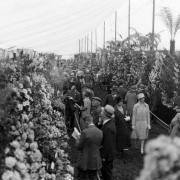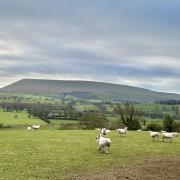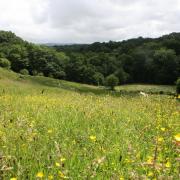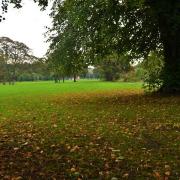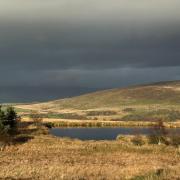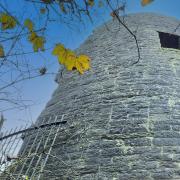This Lancashire town’s connections with Shakespeare are set to attract theatre-lovers and students from around the world. Catherine Jones reports

In the 18th century, it was a key staging post on the new turnpike roads radiating from the burgeoning port of Liverpool.
It has been a long time since Prescot, which built its fortunes on pottery and watchmaking, has been a stop for travellers – although half-a-million visitors a year do make a bee-line for one of Merseyside’s biggest attractions, Knowsley Safari Park, which sits on its doorstep.
But all that could be about to change, with the help of one of the town’s most illustrious – and yet until recent years, little known – connections, with a certain William Shakespeare Esquire.
Four hundred years after his death, the Bard is being enlisted to help rejuvenate the little Lancashire town and put it back on the map locally, regionally, nationally, and with an eye on the international stage too.

The connection began with one of the playwright’s patrons, the marvellously monikered Ferdinando Stanley, Lord Strange, who briefly became the 5th Earl of Derby before dying in sudden and mysterious circumstances in 1594.
Stanley, an enthusiastic supporter of the arts, had his own troupe of players, Lord Strange’s Men, who are said to be the first company to have performed Shakespeare’s work at the Rose Theatre in London. Will Kemp was one of its actors, and some scholars believe the playwright also trod the boards with them.
It’s thought he wrote Richard III and Titus Andronicus for the company, and that A Midsummer Night’s Dream was penned to celebrate the wedding of Ferdinando’s brother William, the 6th Earl of Derby.
Derby’s hunting lodge was at Prescot, and a playhouse was built in the town in the 1590s, the only purpose-built, free-standing theatre outside London at that time, and a perfect place for Lord Strange’s Men, later renamed Derby’s Men, to perform on home turf.

Now plans are afoot for a new theatre, the £24 million Shakespeare North Playhouse, which it’s hoped will be open in time for the Bard’s birthday in 2020. The Playhouse, a reproduction of Inigo Jones’s Jacobean court ‘Cockpit’, will stage Shakespearean classics by visiting theatre companies, and act as an educational base for an international MA in performance of his work.
This ambitious project is being driven by a charitable trust made up of a variety of people, from Shakespearian experts to theatre education professionals, and has a star-studded list of patrons including Dame Judi Dench, Sir Patrick Stewart, Vanessa Redgrave and Dame Helen Mirren.
The money is coming from a variety of sources, some already in place and some in the application process. Officials believe they will devise some ‘creative way’ to make up any gap in the funding.
They have £6 million secured from Knowsley Borough Council and £5 million government money via the Arts Council. There is currently a £6.5m full business case being considered by Liverpool City Region and there are high hopes this will be approved. Something like £675,000 has come in from individual donations.

Contractors have been appointed and site clearance and minor jobs should be completed by July when the main works are due to start.
The council is keen on the project because of the regeneration and educational opportunities it will bring to an area that needs a shot in the arm.
There is already evidence of the beneficial impact it will have with a new Shakespeare-inspired 27-bedroom boutique hotel in the offing, while a micropub, named The Bard and run by the team behind Melwood Beer Company is the newest addition to the town’s historic High Street. This is where the original Prescot Playhouse is believed to have stood.
Brewer John Marsden said when the Melwood team heard the Tudor structure could have stood on the spot of their new hostelry, ‘Everything fell in to place, the planets aligned.’ Or as Shakespeare might say, ‘a star danced, and under that was I born’.
John has plans to create special Shakespeare-themed beers and, along with offering Melwood’s cask and keg brews, the micropub will host unusual ales from small breweries across the country, along with boutique spirits.
These are all ambitious additions to the town, eight miles north east of Liverpool, which already enjoys an Elizabethan Fayre, along with performances of open-air Shakespeare each summer in its Woodland Theatre. Meanwhile the Lord Chamberlain’s Men have become annual visitors to the grounds of nearby Knowsley Hall.
‘People in Prescot are really proud of their history and heritage, and this is an aspect that’s only been uncovered really in the last ten years,” says Paula Williams, Knowsley’s head of tourism.
In fact, Prescot’s origins go back beyond Tudor England to Anglo-Saxon times, while the oldest surviving records date from 1178.
In the 1390s the manor of Prescot was sold to John of Gaunt, the first Duke of Lancaster. It inherited by his son, Henry IV, who included it as part of the gifts used to found what became King’s College, Cambridge.
Potteries were founded in Prescot during the same century, and at the time when the playhouse was entertaining crowds on the edge of the Knowsley estate, there were seven recorded kilns firing Prescot’s distinctive white and red wares.
Watch and clock making became the town’s main trade from the 18th century until 1910 saw the demise of the Lancashire Watch Company. You can find out more about its history at Prescot Museum.
While it’s suffered a similar fate to other small towns over the decades, including the destruction of parts of its historic centre, there is confidence this focus on Prescot’s Shakespearean heritage will bring in new visitors and tempt some of the thousands who bypass it for the excitement of the safari park to extend their day.
There are also plans for a special Shakespeare trail from the station to the heart of Prescot itself, a town centre which includes the Grade I Listed Jacobean St Mary’s Church, in whose font the 18th century Shakespearean actor John Philip Kemble was reputedly christened.
Meanwhile, millions of pounds are being spent to recreate a 19th century look for shop fronts in some of the most historic parts of the old market town. As Paula says, the Shakespeare link looks like putting Prescot on the international stage.






